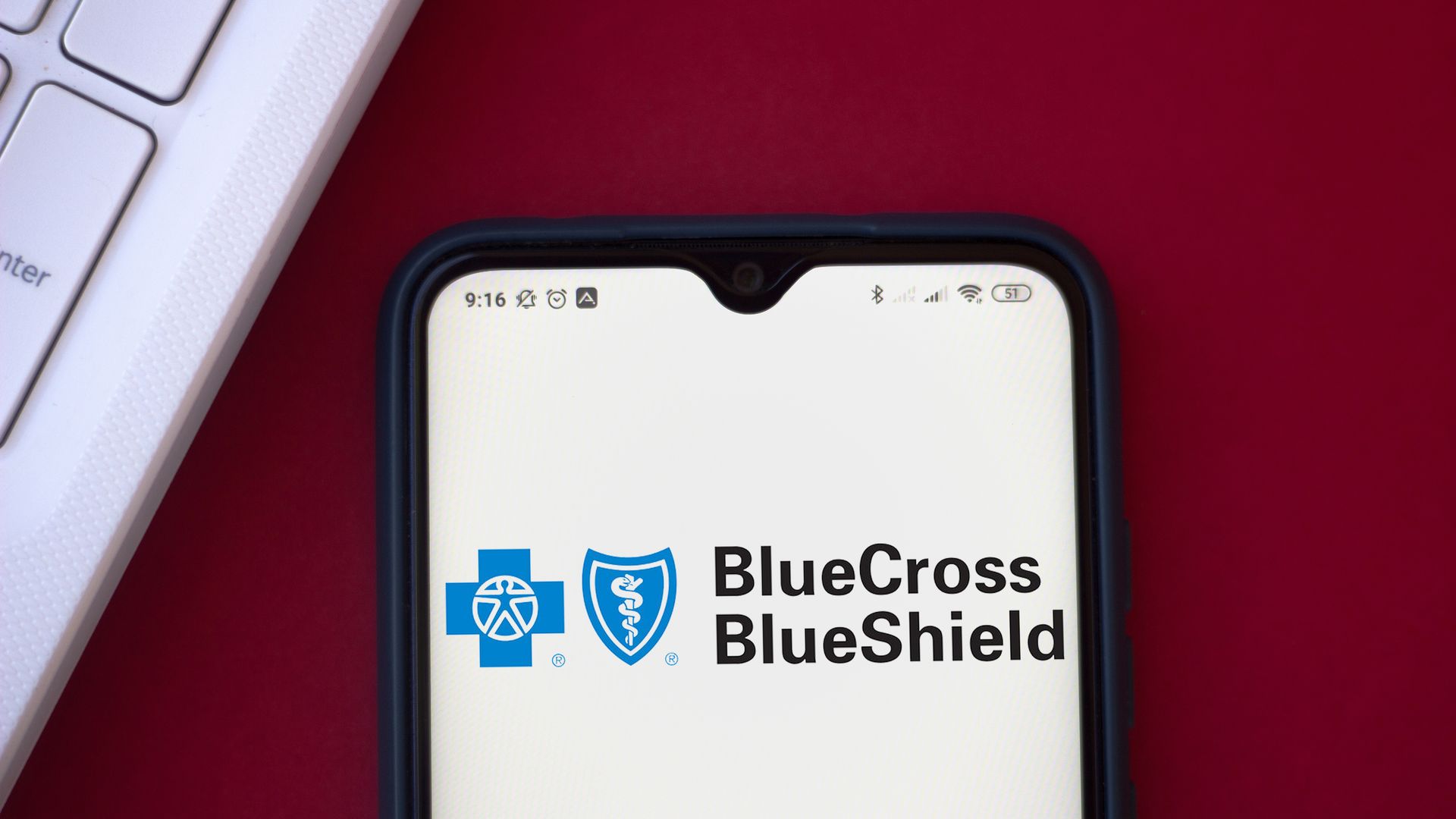The M&A power behind the Blue Cross Blue Shield Association
Add Axios as your preferred source to
see more of our stories on Google.

Photo: Rafael Henrique/SOPA Images/LightRocket via Getty Images
Health insurance companies that are licensed by the Blue Cross Blue Shield Association face steep financial penalties from that organization if they merge with a competitor that doesn't sell BCBS insurance.
Why it matters: Blue Cross Blue Shield is one of the most recognizable health insurance names in the country, and the powerful association behind that brand wants to keep its dominance in local markets.
Case in point: Triple-S Management, the BCBS affiliate in Puerto Rico, sold itself in August to the parent company of the Florida Blues for $900 million.
- If Triple-S sold itself to a non-BCBS company, therefore terminating its license with the BCBSA, Triple-S would have faced a $96 million surcharge from the association, according to merger documents filed by Triple-S.
- The $96 million charge, based on a fee of $98.33 per member, would have been classified as a "re-establishment fee."
- BCBSA would transfer a portion of that fee to another Blues insurer to directly compete with Triple-S, according to the documents.
- Anthem, another BCBS insurer that entered the market after buying Puerto Rico's largest Medicare Advantage plan, could've been a beneficiary of that fee, according to the documents.
What they're saying: "The license agreements between the Blue Cross Blue Shield Association and its licensees include various financial and other provisions that apply to terminations, mergers and sales of licensees," BCBSA said in a statement. "BCBSA is unable to confirm the financial implications of any other transactions that Triple-S may have considered in deciding to enter into this transaction."
Flashback: Last year, the BCBSA agreed to a settlement in a multi-year antitrust case that alleged the Blues companies "illegally conspired to divvy up markets and avoid competing against one another," according to the Wall Street Journal.
